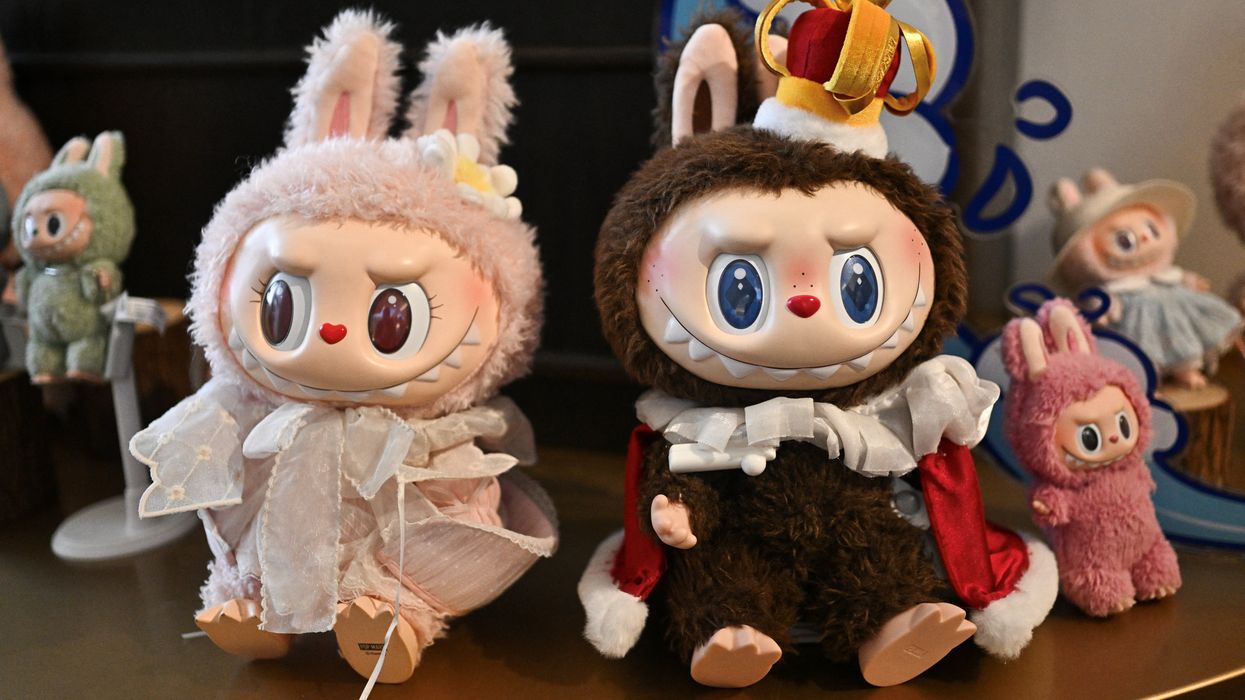A mischievous elf-like toy called Labubu has gone from niche collectable to global cultural phenomenon. Created by Hong Kong-born artist Kasing Lung and popularised by Chinese toy giant Pop Mart, Labubu has captured the imaginations of collectors from Beijing to London and beyond, with celebrity endorsements and long queues at retail stores fuelling its rapid rise.
The birth of Labubu
Labubu originated as a character in The Monsters, a picture book series by Lung. With its signature wide eyes, pointed ears and toothy grin, the figure was designed to be kind-hearted yet chaotic, charming in a deliberately imperfect way. The name “Labubu” itself doesn’t mean anything; it was invented for the character.
The toy first gained traction when Pop Mart acquired licensing rights in 2019. Pop Mart, founded by Wang Ning in 2010, had already found success with blind-box toys—sealed packages that keep the buyer unaware of which toy they’ve purchased until they open it. This model, combined with Labubu’s offbeat appeal, became a winning formula.
Global popularity and celebrity power
Although Labubu gained popularity in China early on, its international breakthrough came post-pandemic. Fans describe the toy as an “anti-cute” character that resonates with those tired of perfect aesthetics. Its appeal lies in its unpredictability, emotional expressiveness, and the thrill of collecting.
The Labubu frenzy went global in 2024, particularly after Thai K-pop star Lisa from BLACKPINK posted about the dolls. Soon after, global celebrities including Rihanna, Dua Lipa, Kim Kardashian, and David Beckham were seen with Labubu toys, turning the quirky character into a fashion accessory and internet talking point. Rihanna, for instance, was photographed with a Labubu clipped to her designer handbag, while Kardashian showed off her full collection online.
Booming sales and global reach
The celebrity exposure helped drive international demand. Pop Mart now operates over 2,000 vending machines—nicknamed "roboshops"—as well as more than 130 stores in over 30 countries. By the end of 2024, nearly 40% of its total revenue came from outside mainland China.
Sales have soared, and Pop Mart’s market value now surpasses that of Western toy giants like Mattel and Hasbro. In early 2025, the company reported a rise of nearly 500% in international revenue compared to the previous year.
The role of scarcity and surprise
A key part of Labubu’s success is its blind-box marketing strategy. Collectors never know exactly what version they’re getting; some are common, while rare “chaser” variants are far harder to find. This element of chance keeps consumers coming back for more. Some fans have even learned to weigh or shake boxes in hopes of guessing the contents.
Collector Desmond Tan, for example, says he often purchases multiple boxes in a single visit. He finds particular joy in identifying rare editions through feel alone, a practice now widespread among collectors.
Labubu dolls come in dozens of themed series, including “Exciting Macaron” and “Fall in Wild.” Limited editions and seasonal drops often sell out within minutes, both online and in-store. Prices range from £14 to £40 at retail, but rare items command much higher prices on resale markets.
Cultural soft power
The Chinese government has celebrated Labubu’s international popularity as a form of soft power. State media outlets like Xinhua have described the toy as an example of "Cool China"—a creative cultural product that resonates globally. This aligns with a wider push to promote Chinese intellectual property abroad, alongside video games and animated films.
Despite the success, the popularity has led to concerns over counterfeit products. Chinese customs officials recently confiscated over 70,000 fake Labubu toys, a sign of just how widespread the demand has become.
More than a toy
For many fans, Labubu represents more than just a collectable. It is an escape, a conversation piece, and in some cases, a personal symbol. Its curious charm, global reach, and viral appeal show how a character with no clear backstory can still capture hearts across continents.
What began as a quirky elf in a Hong Kong picture book has now become a cultural icon, equal parts weird, adorable and unstoppable.





